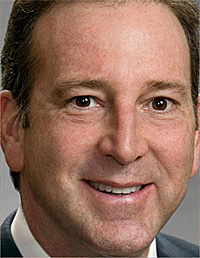
|  |  |  Editorials | Opinions Editorials | Opinions  
Mexico Marks Progress in 200th Year
 Antonio O. Garza - American-Statesman Antonio O. Garza - American-Statesman
go to original
September 13, 2010

 |  | On Sept. 16, Mexico celebrates its bicentennial. Two hundred years young and a burgeoning democracy, Mexico has much to celebrate and many significant challenges that must be faced head on. |  |  |  |
Healthy economy, institutional reforms, trade ties help ensure better future.

As we celebrated our nation's bicentennial in 1976, I recall the national pride that was 200 years in the making. And, as a young man growing up along the U.S.-Mexico border in Brownsville, I vividly remember standing shoulder to shoulder with friends from Matamoros, Tamaulipas, who joined me to mark the occasion.

Now, on Sept. 16, Mexico celebrates its own bicentennial. Two hundred years young and a burgeoning democracy, Mexico has much to celebrate and many significant challenges that must be faced head on.

I've long argued that our two nations today are more intertwined than ever before in our shared histories. Grow up along the border, as I have, and you understand the cultural, historical and economic connections better than most. Live anywhere in the U.S. or Mexico today, and you ought to hold an appreciation for why now, more than ever, the two countries must work together.

So, where will the United States stand as Mexico looks to its next 200 years?

Unfortunately, the rhetoric of late, charged by election-year politics and singed by the fires of the immigration debate, suggests something less than the solidarity I experienced standing along the border some 30-plus years ago.

We may be a bit off from our heyday of $1 billion a day in two-way trade, but in spite of the softening of our economies, the U.S. and Mexico are closing in on $200 billion in trade this year alone. And, Mexico's Ministry of Economy reports that the country has seen more than $12.2 billion in foreign direct investment during the first half of 2010, with the U.S. accounting for nearly 30 percent.

There's no doubt that our two nations' economies are increasingly interconnected. Yet, the Mexico most Americans know today is a country rocked by cartel violence with spillover threatening U.S. border communities.

Mexico faces real and significant institutional, security and economic challenges and, if left on its own, they most certainly cannot overcome them all. I am not naive: Their challenges are fueled by nascent institutions and endemic corruption, as much as U.S. demand for illicit drugs and the flow of arms south.

So, on the eve of the Diez y Seis celebrations in Mexico this month, the question remains: How will the U.S. view and treat its southern neighbor as the next chapter in Mexican history begins?

If one looks closely, you will find evidence of some striking security successes from the Calderón administration. Last month's capture of one of the world's most infamous drug kingpins, Edgar "La Barbie" Valdez Villarreal, is clearly a political and security coup for President Felipe Calderón and one more example of the president's unwavering courage and commitment to the fight. Yet, the tragic deaths of 72 migrants in Tamaulipas underscore the brutal and long-term nature of this fight.

While many observers have turned their attention to the 2012 elections, we cannot lose sight of the immediate challenges.

Mexico's secretary of public security, Genaro García Luna, wrote in Americas Quarterly that he remains steadfast in his commitment to building the type of institutions necessary for the long-term benefit of the country. His effort to modernize the police force is a key component of his broader strategy to build a reliable, modernized justice system.

While increasing the size of the federal police force to over 30,000 officers, García Luna incorporated stricter recruitment and retention guidelines, as well. His recent dismissal of 3,000 officers for failing to meet new standards for professionalism and integrity shows just how committed Secretary Luna is to meaningful security and justice system reform.

Recently elected president of Mexico's Senate, Manlio Fabio Beltrones also made clear that more aggressive institutional reforms are critical. Throughout his career, Sen. Beltrones has played a fundamental role in pressing for reforms aimed at unemployment, as well as political and judiciary reforms aimed at improving transparency.


| | Tony Garza |  |
In Mexico, there's a great appreciation for Sen. Beltrones' behind-the-scenes ability to find consensus, bridge political divides and advance reform. The Senate leader has a keen sense of where Mexico needs to go, and he is right to press for change that will enhance the long-term security and economic competitiveness of his country and its people.

And, in spite of an almost daily dose of violence reported on by U.S. and Mexican media, Mexico's resiliency in light of the global economic downturn is often overlooked, but no less remarkable. Mexico's economy is expanding, and the country's gross domestic product is forecast to grow at an annual rate of 7.5 percent, according to the median forecast of 21 economists surveyed by Bloomberg.

Antonio O. Garza is a former U.S. ambassador to Mexico, former chairman of the Texas Railroad Commission and former Texas secretary of state. He is counsel in the Mexico City office of White & Case and a partner with ViaNovo, a U.S.-based public affairs consultancy; tonygarza.com. |

 |
|  |



